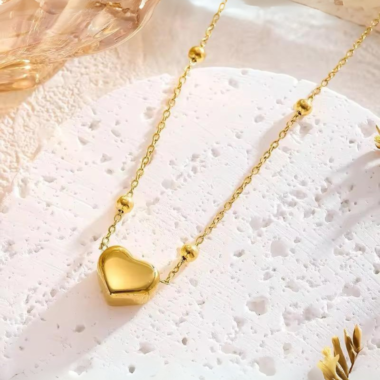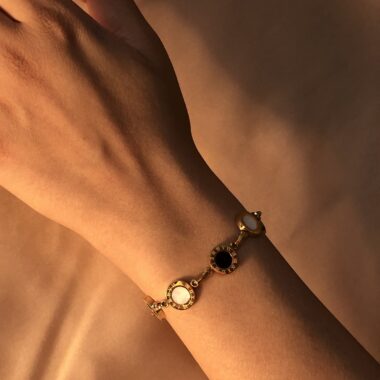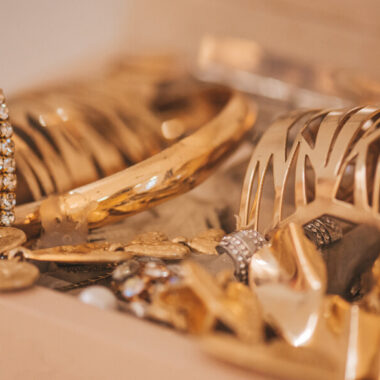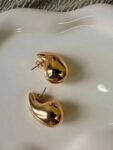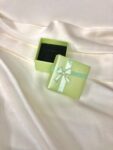Table of Contents
Understanding the Risks Behind Reactions
💍 Introduction: Beauty Shouldn’t Hurt
In Pakistan’s booming artificial jewelry market, fashion lovers now have access to an enormous variety of affordable, beautifully designed rings. Whether it’s a sparkling zircon piece for a wedding or a minimalist band for daily wear, artificial rings are a key part of every Pakistani woman’s jewelry collection.
But there’s a hidden problem.
Many customers experience itching, rashes, or discoloration when wearing rings — especially in our hot, humid climate. These reactions often go unnoticed or misdiagnosed. For those with sensitive skin, this can be frustrating, painful, and even embarrassing.
So, the big question is:
Are artificial rings safe for sensitive skin?
In this blog series, we’ll break down:
- Why some rings cause skin irritation
- How to identify allergic reactions
- Which materials are safest
- And most importantly — how you can still wear gorgeous rings without suffering for style.
🧪 What Causes Skin Reactions from Artificial Rings?
Sensitive skin isn’t a rare issue. Around the world — including in Pakistan — skin allergies from jewelry are increasingly common. The culprit? Often, it’s the metal used in low-cost or poorly made rings.
Here are the main causes:
1. Nickel: The #1 Trigger
Nickel is one of the most common metals used in artificial jewelry because it’s cheap, durable, and easy to mold. Unfortunately, it’s also the leading cause of contact dermatitis (an itchy skin rash) in jewelry wearers.
In Pakistan, a lot of mass-produced jewelry sold in local markets contains nickel.
Symptoms of nickel allergy include:
- Redness around the finger
- Dry, itchy skin
- Small blisters or bumps
- Burning sensation
Nickel can be hidden under gold or silver plating. Once the plating wears off — the nickel underneath is exposed to your skin.
2. Alloy Mixtures & Unknown Ingredients
Artificial rings are typically made using mixed metals, called alloys. These can include:
- Copper
- Zinc
- Lead (in very poor-quality jewelry)
- Nickel
- Tin
Since most sellers don’t disclose full ingredient lists, sensitive skin users don’t know what they’re putting on their hands.
👉 Tip: Always buy from brands that clearly state “nickel-free” or use high-quality base metals.
3. Plating & Polish Chemicals
Even if the base metal is skin-friendly, some rings are coated in harsh polish or low-grade chemicals that trigger irritation. These polishes are added to give shine or prevent tarnish but can be dangerous for allergic skin.
🧏♀️ Who Is at Risk?
While anyone can develop an allergy over time, the following people are most vulnerable:
- Women with existing eczema or dry skin
- People allergic to earrings, buttons, or watchbacks
- Individuals with sensitive or thin skin
- Those who sweat heavily (as sweat breaks down plating faster)
- Users who wear rings 24/7 without cleaning
Pakistani women living in humid climates like Karachi, Lahore, or Multan are especially prone due to weather conditions.
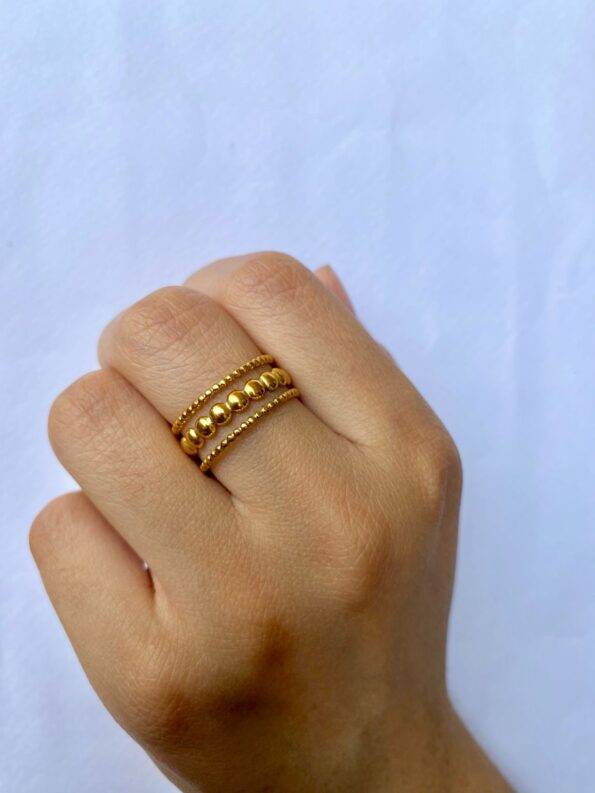

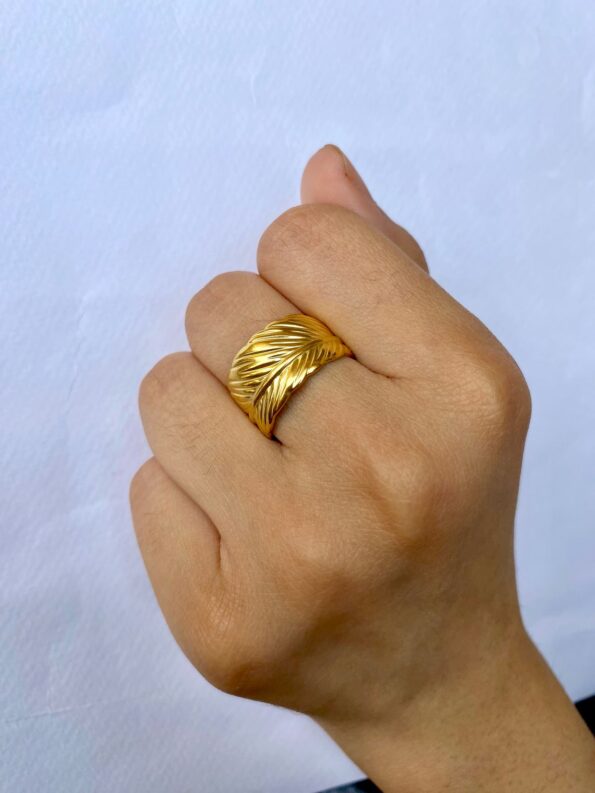
🧴 How to Know If You Have a Ring Allergy
Here are key signs your artificial ring might be causing a problem:
| Symptom | What It Looks Like | What It Means |
|---|---|---|
| Redness | Around finger area | Mild allergic reaction |
| Itching | After removing ring | Skin irritation |
| Skin discoloration | Green/black mark under ring | Metal reacting with sweat |
| Peeling skin | Usually around the knuckle | Ongoing exposure to allergen |
| Small blisters | In severe cases | Advanced contact dermatitis |
learn more: Jewelry and Artificial Fingernails in the Health Care Environmenthttps://www.sciencedirect.com/science/article/abs/pii/S0196439913000147
👂 Common Misconceptions
Let’s bust a few myths we’ve heard from Pakistani customers:
❌ “It’s because the ring is cheap.”
Not always. Even expensive rings can contain nickel if the seller cuts corners.
❌ “I only react to earrings, not rings.”
Different body areas have different sensitivities. Rings often cause delayed reactions because they’re worn longer.
❌ “Discoloration means the ring is fake.”
Green marks come from copper reacting to sweat — not necessarily a sign of fake jewelry, but a clue it might not be right for you.
🇵🇰 Local Market Reality in Pakistan
In many Pakistani bazaars, from Anarkali Lahore to Tariq Road Karachi, artificial rings are sold by the dozens — with no labeling about materials used. Most customers buy based on look and price.
This is where premium local brands like TaazStudios offer a safer alternative. We use nickel-free base metals, rhodium or gold plating, and hypoallergenic finishes — ensuring that even sensitive skin customers can enjoy elegance without irritation.
Yes — artificial rings can cause skin irritation, especially if they contain nickel, mixed alloys, or harsh plating chemicals. But you don’t have to stop wearing them.
With the right knowledge, material choices, and shopping habits, you can enjoy stylish rings with zero discomfort.
Choosing the Right Materials for Allergy-Free Wear
🌿 Introduction: Not All Artificial Rings Are Equal
In Part 1, we uncovered how artificial rings can sometimes cause skin irritation due to metals like nickel, poor-quality plating, or unknown chemical coatings. But here’s the good news: you don’t have to give up stylish rings to protect your skin.
The real key? Choosing the right materials and learning how to wear rings safely — especially in Pakistan’s weather and lifestyle conditions.
Let’s dive into how to shop smart, what materials to look for, and what practices make all the difference for people with sensitive skin.


🥇 Best Ring Materials for Sensitive Skin
Not all artificial rings are made from the same metal. Some are completely safe for sensitive skin — others are toxic traps. Here’s a detailed breakdown of skin-friendly materials:
✅ 1. Stainless Steel (Hypoallergenic Grades)
- Why it’s safe: Medical-grade or surgical-grade stainless steel (316L or 304L) is non-reactive and doesn’t contain nickel in harmful amounts.
- Bonus: Durable, rust-resistant, and doesn’t tarnish easily.
🧡 Best for: Daily wear, Pakistani humid climates, long-term use
🚫 Avoid if: The seller doesn’t specify the grade — low-grade steel may still contain nickel.
✅ 2. Titanium
- Why it’s safe: Naturally nickel-free, super lightweight, and commonly used in body piercings and implants.
- Bonus: Stronger than steel, great for minimalists.
🧡 Best for: Men’s rings, wedding-style bands, lightweight comfort
🚫 Avoid if: You want super shiny finishes — titanium is often matte or brushed.
✅ 3. Tungsten Carbide (Nickel-Free)
- Why it’s safe: Usually safe if labeled nickel-free; highly scratch-resistant and looks luxurious.
- Bonus: Has a heavier, more “real gold” feel.
🧡 Best for: Statement pieces, formal events, men’s luxury styles
🚫 Avoid if: The tungsten alloy contains nickel — always check with the brand.
✅ 4. Rhodium-Plated Rings (Over Brass or Silver)
- Why it’s safe: Rhodium is a platinum group metal, naturally hypoallergenic. High-end artificial rings often use rhodium plating to mimic real white gold.
🧡 Best for: Brides, formal events, gifting
🚫 Avoid if: The base metal is unknown or not nickel-free — the plating can wear off.
✅ 5. Gold-Plated Brass (Nickel-Free)
- Why it’s safe: High-quality brass with gold plating is fine for most people, especially if labeled nickel-free.
- Bonus: Gives you the look of real gold at a fraction of the price.
🧡 Best for: Traditional Pakistani styles, mehndi, weddings
🚫 Avoid if: The plating is thin or poorly done — may rub off easily.
🚫 Materials to Avoid for Sensitive Skin
| Material | Why it’s a problem |
|---|---|
| Nickel | Highly allergenic, most common trigger |
| Copper (Raw) | Can turn skin green, irritate sensitive types |
| Zinc Alloys (Unlabeled) | Often mixed with unknown elements |
| Cheap Costume Jewelry | No material disclosure, unsafe plating |
🔎 How to Read Labels & Shop Safely in Pakistan
Unfortunately, many local artificial jewelry shops in Pakistan don’t share what materials they use. That’s why it’s important to shop from brands that provide:
- ✅ Full material disclosure
- ✅ Labels like “nickel-free” or “hypoallergenic”
- ✅ Long-lasting plating (rhodium/gold)
Look for these phrases on product pages:
- “Suitable for sensitive skin”
- “Rhodium plated over brass”
- “316L stainless steel”
- “Nickel and lead free”
- “Hypoallergenic”
At TaazStudios, for example, we highlight these details on every ring product to help customers shop confidently.
📌 Safe Wearing Tips for Sensitive Skin
Choosing the right material is step one. But how you wear and care for your rings also affects skin safety.
Here are 10 golden tips:
- Rotate your rings — don’t wear the same one every day.
- Remove rings before sleeping or bathing.
- Clean your rings weekly with a soft cloth and mild soap.
- Don’t wear rings on sweaty days or when working out.
- Apply lotion/perfume first and let it dry before wearing rings.
- Check for discoloration around the finger after a few hours.
- Avoid wearing rings for too long during summers (humidity speeds up plating damage).
- Take off rings when cooking, washing dishes, or using detergents.
- Store rings in dry, air-tight boxes to reduce tarnish.
- Choose adjustable rings if you have eczema — less pressure means less irritation.
🧪 How to Do a “Patch Test” at Home
Not sure if your ring is safe? Do a simple skin test:
- Wash your hands and dry them.
- Wear the ring for 2 hours on a small part of your finger.
- Remove it and wait 24 hours.
- Check for any redness, itching, or marks.
If there’s no reaction — you’re probably safe.
📚 Real Pakistani Stories
Nimra from Lahore:
“I used to avoid wearing rings because of constant itching. Then I bought a rhodium-plated zircon ring from TaazStudios — zero irritation, even in summer weddings!”
Fatima in Islamabad:
“I always thought I was allergic to all fake jewelry. Turns out it was just nickel. Now I wear stainless steel rings with no issues at all.”
Treatment, Prevention & Best Hypoallergenic Ring Picks
.
🚨 What to Do If You’ve Had a Reaction to a Ring
If your skin has reacted negatively to an artificial ring, don’t panic. Mild reactions are very common and usually treatable at home.
👀 Symptoms of a Reaction
- Redness or swelling around the finger
- Dry, flaky skin or itchiness
- Blistering (in severe cases)
- Darkened skin under the ring (common with nickel/copper)
🛠️ First Aid at Home
- Remove the ring immediately.
- Clean the area with gentle soap and water.
- Apply a cold compress to reduce swelling.
- Use an over-the-counter hydrocortisone cream (0.5–1%) for itchiness.
- Moisturize with unscented lotion (like CeraVe or Vaseline).
If the rash doesn’t improve in 2–3 days, or worsens, consult a dermatologist.
🧴 Long-Term Prevention Tips
Once your skin has reacted, you’re more likely to be sensitive again — especially to nickel. Here are long-term solutions for ring lovers with sensitive skin:
1. Use Clear Nail Polish on Ring Interiors
A quick DIY trick: apply a thin coat of clear nail polish to the inside of the ring to create a barrier between the metal and your skin. Reapply every few wears.
2. Look for Hypoallergenic Product Labels
Only buy rings labeled:
- “Nickel-Free”
- “Hypoallergenic”
- “Dermatologist-Tested”
These are often available from premium artificial jewelry brands like TaazStudios, where safety and quality are prioritized.
3. Switch to Adjustable or Open-Back Rings
These prevent friction and pressure buildup — reducing the chance of irritation.
4. Clean Your Rings Weekly
Dust, soap, sweat, and bacteria can build up and worsen skin reactions. Soak your ring in lukewarm soapy water for 10 minutes, then scrub with a soft toothbrush and dry thoroughly.
5. Avoid Wearing in Summer Heat or Rain
Humidity, especially in Pakistani summers, can speed up metal corrosion and increase skin contact with irritants.
🛒 Best Artificial Ring Options for Sensitive Skin (2025 Picks)
Here are top-rated ring types that offer beauty without burning your skin:
💍 1. Rhodium-Plated Zircon Rings
- Resembles white gold or diamonds
- Often used in engagement-style rings
- Elegant but gentle on skin
🔗 Shop Rhodium Rings – TaazStudios
💍 2. Gold-Plated Brass (Nickel-Free)
- Perfect for mehndi, parties, and shaadi events
- Affordable yet traditional look
- Always choose nickel-free brass to stay safe
💍 3. Stainless Steel Statement Rings
- Modern designs, super durable
- Water and sweat-resistant
- Great for daily wearers
💍 4. Adjustable Fashion Rings
- Minimal contact with skin
- Great for teens and beginners
- Ideal for gifting
💍 5. Stackable Hypoallergenic Bands
- Trendy in 2025
- Mix-and-match styles, often plated with gold or rhodium
- Safe for layering lovers
🔍 Where to Buy Hypoallergenic Artificial Rings in Pakistan?
Finding safe and stylish artificial rings in Pakistan used to be difficult — but now many brands prioritize skin safety and product quality. Here’s what to look for when choosing a seller:
| Factor | Why It Matters |
|---|---|
| ✅ Material Disclosure | Always know what you’re putting on your skin |
| ✅ Return Policy | Helps if you experience a reaction |
| ✅ Customer Reviews | See if others with sensitive skin had issues |
| ✅ Local Availability | Avoid customs or long wait times |
| ✅ Brand Transparency | Brands that educate = brands that care |
Recommended Brand:
💎 TaazStudios — a Pakistan-based premium artificial jewelry brand known for luxury-quality designs and nickel-free products.
👩⚕️ When to See a Dermatologist
If your reaction:
- Doesn’t improve after 72 hours
- Becomes painful or infected
- Occurs every time you wear jewelry
- Includes symptoms like blisters or pus
…then it’s time to consult a skin doctor. They can do a patch test to confirm whether you’re allergic to nickel, cobalt, or other metals.
💡 Final Thoughts: Sensitive Skin ≠ No Rings
It’s easy to feel discouraged if every ring causes irritation. But here’s the truth:
You don’t have to give up rings. You just need to choose the right ones.
With the rise of hypoallergenic artificial jewelry and awareness in Pakistan’s market, you can now wear rings that are:
- Stylish ✨
- Affordable 💸
- Comfortable 🧴
- Safe for your skin 🌿
So go ahead — explore that gold-plated solitaire, or stack those zircon bands.
Just make sure your ring loves your skin as much as you love your look.
📎 Internal Links to Explore:
- Shop Artificial Rings at TaazStudios
- The Ultimate Guide to Buying Luxury Artificial Jewelry in Pakistan (2025)
- Contact TaazStudios for Material Info
🙋 Frequently Asked Questions
FAQs: Artificial Rings & Sensitive Skin
- Are artificial rings safe for people with sensitive skin?
Yes, many artificial rings are safe if they are made from hypoallergenic materials like stainless steel, titanium, or rhodium-plated metals. - What causes skin irritation from rings?
The most common cause is nickel, a metal often used in artificial jewelry. Other triggers include copper, moisture, and poor plating quality. - How do I know if I’m allergic to my ring?
Look for symptoms like redness, itching, dry patches, or rashes around the finger where the ring sits. A dermatologist can confirm it through a patch test. - Which ring materials are best for sensitive skin?
Rhodium-plated, gold-plated (nickel-free), surgical stainless steel, titanium, and silicone are ideal for sensitive skin. - Are gold-plated artificial rings safe?
Yes, as long as they are nickel-free and have high-quality plating, gold-plated rings are generally safe and skin-friendly. - Can I wear artificial rings every day if I have sensitive skin?
You can, but choose hypoallergenic options and avoid wearing them during activities that involve sweat, water, or soap. - Is rhodium plating good for sensitive skin?
Absolutely! Rhodium is hypoallergenic and corrosion-resistant, making it an excellent choice for people with metal allergies. - How do I prevent skin reactions from artificial rings?
Choose hypoallergenic materials, clean your rings regularly, avoid moisture, and apply clear nail polish inside the ring band to act as a barrier. - Do TaazStudios rings cause skin irritation?
No. TaazStudios offers nickel-free, skin-safe artificial rings crafted for comfort and long-term wear. - Can I wear artificial rings during summer in Pakistan?
It’s best to avoid prolonged wear in humid weather if you have sensitive skin, as sweat can trigger irritation. Choose sweat-resistant materials like stainless steel or titanium. - What should I do if my ring causes a rash?
Remove it, clean the skin with mild soap, apply hydrocortisone cream, and let the area breathe. Avoid wearing that ring again unless it’s coated or treated. - Do artificial rings turn skin green?
Rings made with copper or low-quality alloys may oxidize and react with sweat, causing green marks on the skin — not harmful, but annoying. - Are there kid-safe or teen-friendly artificial rings?
Yes! Look for adjustable, nickel-free rings or silicone-based designs, especially if the wearer has delicate or sensitive skin. - How do I clean artificial rings safely?
Soak them in warm, soapy water for 10 minutes, gently scrub with a soft toothbrush, and dry completely. Avoid harsh chemicals that could damage the plating. - Where can I buy safe artificial rings in Pakistan?
You can buy skin-safe, luxury artificial rings from TaazStudios, which specializes in hypoallergenic and premium quality designs.


